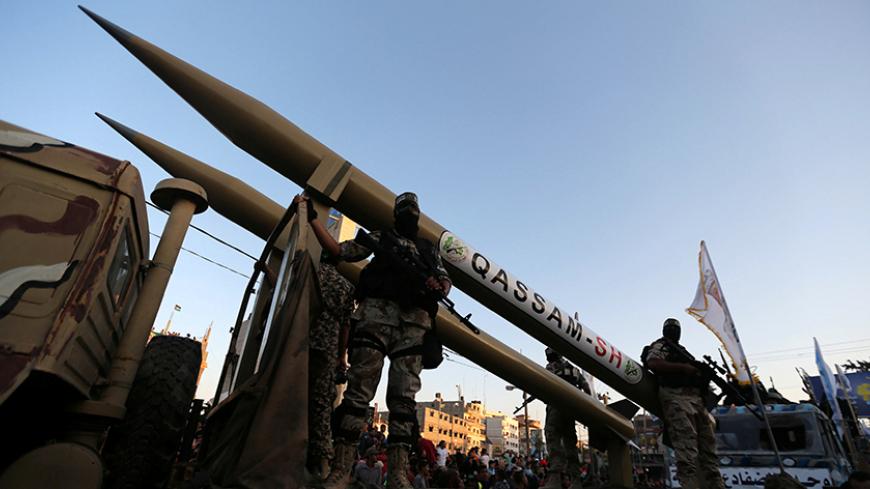On Feb. 7, at least two members of the Israeli Cabinet announced that a new round of fighting between Israel and Hamas can be expected very soon, perhaps even as early as spring. The first was retired Maj. Gen. Yoav Galant (Kulanu), former commander of the Southern Command, who now serves as the minister of housing. The second was the chairman of HaBayit HaYehudi, Minister of Education Naftali Bennett.
These statements followed several large-scale attacks on Hamas targets, launched in response to a single rocket fired by a Salafi group, which landed in an open field in southern Israel on Feb. 6. While it is true that Israel has a "no containment" policy in response to every shot fired at it from Gaza, it seems as if Israel's aggressive responses have been taken up a notch ever since the appointment of current Defense Minister Avigdor Liberman, and they are now disproportional. Israel no longer makes do with sporadic fire at empty positions. It now collects a steep price from Hamas for every rocket that some ephemeral group or other manages to fire at it. These attacks are aimed at strategic targets such as tunnels, special weapons depots and various security infrastructures. However, the resulting paradox is that Salafi groups, which challenge the Hamas leadership, have found a way to cause Hamas harm. All they have to do is fire at Israel and wait for the outcome.



